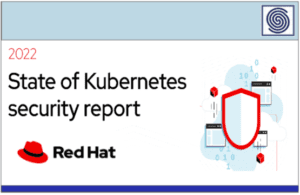Source: securityboulevard.com – Author: Keyfactor Team
Modern life depends on the integrity of critical infrastructure like railroads, ports, highways, power plants, water treatment facilities, and others. Most people don’t wonder or worry about how this infrastructure works, and they don’t have to — because they trust it.
In the digital transformation age, digital infrastructure is just as important. Because many business processes depend on it, every organization has become a software company, to some degree. Problems that once fell in the niche domain of IT now affect the entire business.
Much like a malfunctioning mechanical press or chemical broiler, lapses in digital infrastructure can be drastic, immediate, and expensive. Especially as industries like manufacturing, automotive, healthcare, and others come to depend on that digital infrastructure.
Digital trust is the precursor to the public and private sector’s ability to innovate and implement tomorrow’s solutions.
Why does digital trust matter?
For businesses, today’s enterprise systems landscape has never been more complicated. Apps, users, and systems conduct thousands of digital interactions per minute. These systems are evolving constantly, from multi-cloud strategies to containerized apps. No matter how the system changes, there are a few building blocks of digital trust that can’t be compromised.
- Systems must be able to handle high volumes of traffic and function in the face of unpredicted conditions.
- Data and information exchanged in these digital interactions must remain uncorrupted and secure.
- Organizations must be able to ensure those within the system are who they claim to be, that they’re doing what they’re supposed to be doing, and access only what they need to access.
- Organizations be able to leverage their vendor ecosystems and software supply chains to accelerate business without taking on additional risk.
By establishing trust through these means, organizations can prevent outages, avoid compliance and insurance costs, and stave off breaches.
For consumers and the public, digital trust has largely been synonymous with the protection of data and sensitive information. Laws like the European Union’s General Data Protection Regulation (GDPR) reflect that, but the regulatory landscape is changing.
As quantum computing becomes a reality, governments are defining strategies to protect the digital and operational infrastructure of everything from energy to the military. This is a bid to upgrade the public’s digital infrastructure to a more reliable, resilient, and trustworthy posture.
Strategies vary by country and region, but they often call for better collaboration between public, private, and government sectors.
- Organizations, whether commercial or government, tend to be tight-lipped about security incidents. Sharing experiences and information would make it easier for organizations to prevent disruptions and preserve integrity.
- Makers of apps, IoT devices, and other digital assets traditionally treat security as an afterthought. In today’s world, this attitude is no longer sustainable, and these creators and manufacturers are being called upon to bake in security best practices as early as possible in their projects.
At the end of the day, trust is safety. Business leaders know their organizations are safe from outages, fines, and breaches. Citizens feel safe entrusting their data to them. Operators of industrial environments are confident their operations will run without disruption.
Digital trust in key industries
From the cars people drive to the places they conduct their finances, digital trust plays a role in the most common and important aspects of our society.
Automotive

The average vehicle today has more lines of code than a fighter jet. It relies on internal IT and IoT systems for diagnostics, navigation, communication, and a host of other functions.
The more connected vehicles become, the larger their attack surface grows. Consumers must be able to trust that the programming and over-the-air updates of their vehicles are benign.
Digital trust secures the connectivity of automobile components and gives their manufacturers greater ability to push out updates without interrupting the user’s experience. When a vehicle can securely receive new features over time, the user’s experience gets better and better.
Healthcare technology

From Fitbits to pacers to wearable glucose monitors, many medical devices rely on internal IoT devices to gather and share information. By properly securing these devices, organizations and users can reap the benefits of the healthcare data revolution without the risk of compromise.
When devices are secure and trustworthy, they can function in a larger secure ecosystem of other devices and components to strengthen the chain of care and achieve better patient outcomes.
Manufacturing

Connected technologies have the potential to bring the advantages of digital transformation to the industrial space of operational technology (OT).
The ability to derive production data from equipment like industrial vats and robotic arms opens immense possibilities, but the stakes around these devices are high. A website crashing is one thing, but a blast furnace malfunctioning is quite another.
As attacks on industrial environments are on the rise. Securing these devices is vital to preserving the physical safety of both workers and civilians, in addition to unlocking unprecedented efficiency, precision, and agility.
Financial services

In the financial realm, digital transactions are more tangible. Securing them is key to maintaining trust and preventing financial crimes. With digital trust, financial institutions can keep their customers’ trust and provide better, more impactful financial experiences.
Securing financial digital infrastructure can also facilitate a more dynamic ecosystem with fintechs and other apps.
PKI is the infrastructure of digital trust
The digital interactions that enable businesses, utilities, and public services are verified and secured through public key infrastructure (PKI). PKI consists of digital keys and certificates that enable the encryption of data and validate the identity of digital users and assets.
Generally, these cryptographic tools function like passports for everyone and everything moving around and interacting in the digital space. They exist in everything from e-commerce websites to backend applications, from medical devices to vehicles to smart home appliances.
To build an infrastructure that inspires digital trust for leaders, consumers, and business users, organizations must get a handle on the PKI and certificate landscape of their organizations.
To learn how to better manage PKI and build digital trust within your organization, download the white paper, The Role of Digital Trust in an Untrusting World.

The post Building Digital Trust in an Untrusting World appeared first on Keyfactor.
*** This is a Security Bloggers Network syndicated blog from Blog Archive | Keyfactor authored by Keyfactor Team. Read the original post at: https://www.keyfactor.com/blog/building-digital-trust-in-an-untrusting-world/
Original Post URL: https://securityboulevard.com/2023/08/building-digital-trust-in-an-untrusting-world/
Category & Tags: Security Bloggers Network – Security Bloggers Network





















































